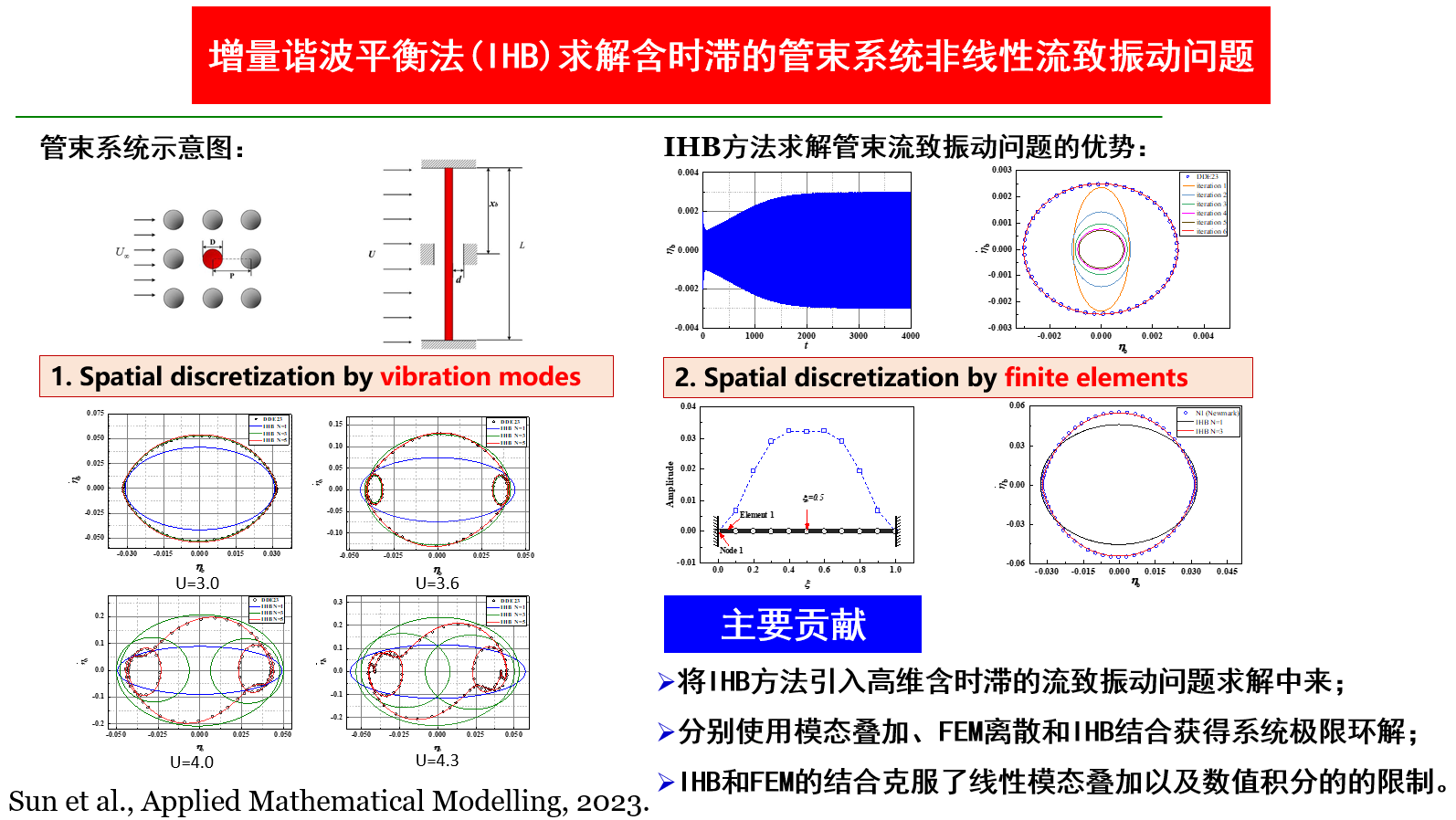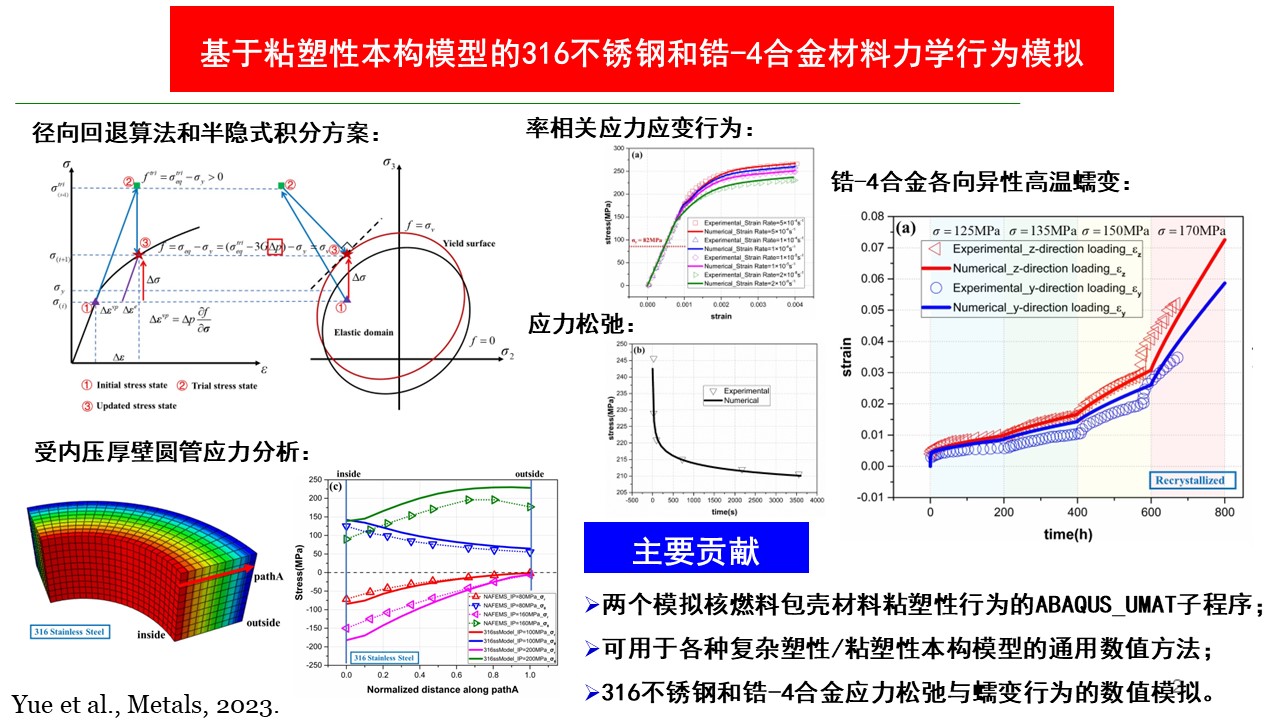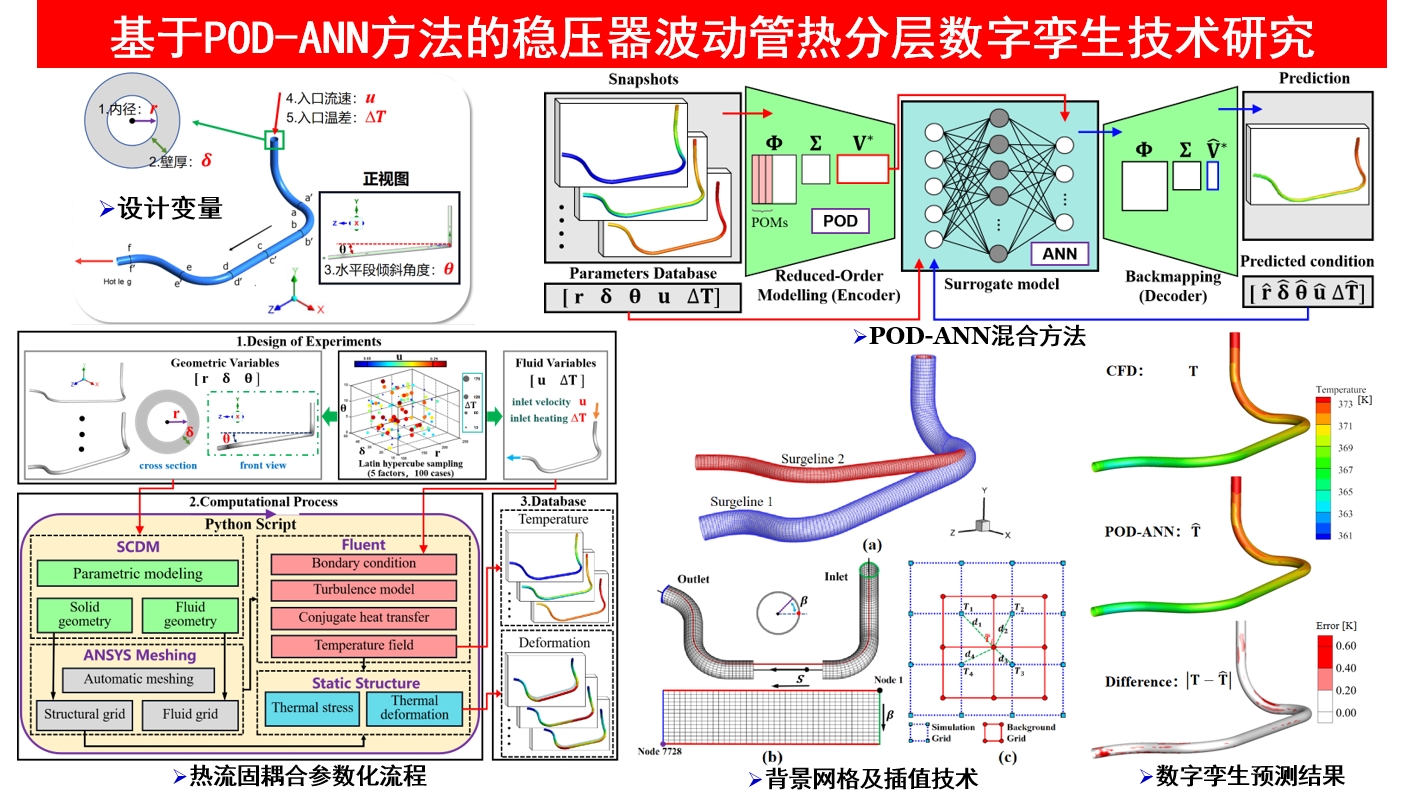周进雄教授设计与仿真小组简介(Introduction to Zhou's Design and Simulation Group)
研究方向(Research Interests):
(1)先进飞行器设计与优化(Design and optimization of advanced spacecrafts): 研究飞行器设计中的流固耦合问题,结构综合设计与优化,飞行器结构强度与振动,柔性减阻表面与减阻设计(Fluid-structure interaction in aircrafts; Design and optimization of aircraft structures; Strength and vibration of aircraft structures; Drag-reduction in flexible surfaces) ;
(2)基于人工智能的新型计算方法及其工程应用(Artificial intelligence based numerical methods and applications): 有限元与机器学习的结合,数据驱动的新型数值方法及其应用,基于机器学习的流固耦合问题数值方法,增材制造过程数值模拟(Machine learning integrated with FEM; dada-driven numerical methods with applications; machine-learning based methods for fluid-structure interactions; modeling of additive manufacturing) ;
(3)空间可展开结构设计与仿真(Design and modeling of aerospace deployable structures):
研究缠绕肋天线结构设计与仿真,空间可展开结构的设计与仿真,力学超材料及其在空间结构中的应用(Design and simulation of wrap-rib antenna structures; Design and modeling of space deployable structures; mechanical metamaterials with application in aerospace structures) ;
(4)核反应堆结构力学(Structural mechanics of nuclear reactors):
研究核反应堆流固耦合与流致振动,反应堆结构疲劳、断裂与可靠性分析,核电装备结构动力学,核结构材料力学行为数值模拟(Fluid-structure interaction and flow-induced vibration; Fatigue, fracture and reliability analysis of reactor components; Structural dynamics of nuclear power plants; Modeling mechanical behavior of structural materials of reactors) ;
(5)力学超材料设计与工程应用(Design and applications of mechanical metamaterials):
研究基于增材制造的金属构筑材料设计与力学行为,力学超材料的设计,力学超材料的逆向设计,力学超材料的工程应用(Design and mechanical behaviors of architectured materials; Design of mechanical metamaterials; Inverse design of mechanical metamaterials; Enginnering applications of mechanical metamaterials) ;
研究特色(Expertise):强调熟练掌握、应用并开发从事各种结构(航空航天、机械、电子、车辆、核工程)设计、分析、优化工作必不可少的各种CAD和CAE软件,来解决重要的工程实际问题和新奇的学科前沿问题,努力做到学术前沿和工程实际问题的兼顾与互补。(A variety of CAD and CAE commercial softwares are intensively used in our lab to solve diverse engineering and academic problems, which are essential prerequisites for design, analysis and optimization of various structures including aerospace, mechanical, electronic, cars and nuclear reactors.)
研究基础(Achievement):主持和参加国家自然科学基金项目8项,主持省部级和航空航天企业横向课题20余项。在Adv. Mater.,Adv. Func. Mater.,Soft Matter,ACS Appl. Mater. Interfaces,Appl. Phys. Lett.,J. Mech. Phys. Solids等顶尖材料、软物质、物理及力学类国际期刊发表SCI收录论文100多篇,其中影响因子大于10的论文4篇,影响因子大于3的论文15篇,ESI高被引论文2篇,论文总引用5000次,SCI他引3000多次。(Prof. Zhou is the PIs of 4 NSFC grants and PIs of more than 20 engineering and provincial projects. He has authored more than 100 international journal papers, including some high-profile journal papers. Four papers with impact factors greater than 10 and more than 15 papers with impact factors greater than 3. Total citation of Prof. Zhou is more than 5000 times, and total SCI citations are more than 3000 times. )
交流与合作(International Collaboration):课题组和哈佛大学等国际顶尖研究小组保持密切的学术交流和科研合作,课题组承担多项企业横向课题,与中航工业、航天科技、中核集团等下属的重点科研院所有广泛而密切的科研合作,同时和校内核能、机械等学科有广泛深入的科研合作,鼓励研究生从事力学、核工程、机械等多学科交叉前沿课题的探索。近年来研究生中有多人到Harvard,Geogia Tech.,UT Austin,Southern California等著名高校交流访问和攻读学位。(We have strong collaborations with some of active leading rearch groups in the world such as Harvard University. We also have multidisciplinary collaborations with professors at XJTU with professors work on nuclear engineering and mechanical engineering. Several students won full scholarship and pursue Phd degree at Harvard, Southern California etc. Some of them studied at Geogia Tech., UT Austin, etc., as visiting students.) 课题组已累计有四名同学到哈佛大学攻读博士学位、从事博士后研究或联合培养!
软件工具(Softwares and facilities):MSC/NASTRAN,MARC,ABAQUS、ANSYS有限元软件,ANSYS/CFX,FLUENT流体计算软件,COMSOL多物理场模拟软件,ADAMS、RecurDyn多刚体动力学仿真软件,Isight、Hyperworks结构优化设计软件及Hypermesh前处理软件,Solidworks、ProE、Inventor及Catia等CAD软件等。学生同时能有机会学习和熟练掌握各种程序设计语言 Python,C++, MATLAB, FORTRAN等,接触和学习最新的人工智能和机器学习算法和软件及其在结构分析和优化中的应用。(We intensively use various popular CAD and CAE softwares. Many user-subroutines have been developed and incorporated into commercial softwares. Lots of examples for academic and engineering problems have been accumulated in our group for the beginners to initiate their learning. Students also have opportunities to receive well-training on programming using popular computer languages such as Python, C++, MATLAB and FORTRAN. We also have interests in applying machine learning algorithms to solve structural analysis and optimization problems. We also jointly get involved into soft machines lab, which allows us to do some experiments.)
学生就业(Career Development of Alumi):由于课题组学生能熟练掌握CAE软件并具有很强的计算分析能力,同时课题组与众多重点科研院所和企业有密切的科研协作,学生就业好!近几年毕业的研究生有8人获得国家奖学金(耿嘉嵩,2013届硕士;郭为,2014届硕士;江衍辉, 2015届硕士;王垠,2015届博士;潘飞,2016届硕士;杨灿辉,2017届博士生;陈宝鸿,2016届硕士生;孙文杰,2016届博士生),主要分配至航空航天、兵器、电子、核能等大型国有企业和研究所工作,如航天一院、航天二院、 航天五院、航天五院504所、航天六院11所,中国工程物理研究院,中国核动力研究院,航天九院、空空导弹研究院、中航光电、中电28所、中国商发、中科院小卫星中心、东方电气、兵器203所、中航强度所、中航一飞院、博世汽车电子等,同时还有学生在新加坡IHPC、南方科大、北京工大、长安大学、西安理工等高校担任教职(Due to their strong expertises on excellent command of CAD and CAE softwares, our group members are welcomed by many state key institutes and companies, ranging from aerospace, mechanical and elctronics engineering. )
热烈欢迎具有科学精神、勤奋刻苦、喜欢前沿交叉研究的学生报考!
欢迎对科学研究感兴趣的本科生到课题组和实验室参加科研训练!
Highly motivated students of various levels are welcomed to join our group for pursuing a Phd or master degree, or just receive training for doing research. Group meetings are open to all students. Foreign students have good command of English and solid background on mechanical engineering and aerospace engineering are also welcomed to apply for a visiting studentship or pursue a Phd or master degree at XJTU.
研究实例(Selected Research Examples):
l 软机器设计与仿真(Design and simulation of soft machines)

(T. He, M. Li and J. Zhou, Soft Matter, 8(2012),3083-3089)

(Wei Guo, Meie Li and Jinxiong Zhou,Smart Mater. Struct. 22 (2013) 115028 (6pp))
l 先进飞行器结构综合设计与优化(Design and optimization of aerospace structures)


航空航天结构优化设计
l 结构屈曲分析与有限元仿真

薄壁圆柱壳屈曲失稳图
l 反应堆堆顶及堆内构件热流固耦合分析

l HDR反应堆LOCA堆内构件动响应分析

l 粘弹性复合材料及可展开结构多尺度分析

l 难熔金属钽电子束粉床增材制造(SEBM)有限元仿真

l 增量谐波平衡法(IHB)求解含时滞的管束系统非线性流致振动问题

l 基于粘塑性本构模型的316不锈钢和锆-4合金材料力学行为模拟

l 基于DMD的绕丝燃料棒轴向流动特性分析

l 基于POD-ANN方法的稳压器波动管热分层数字孪生技术研究

轴向流动特性分析

![]()















